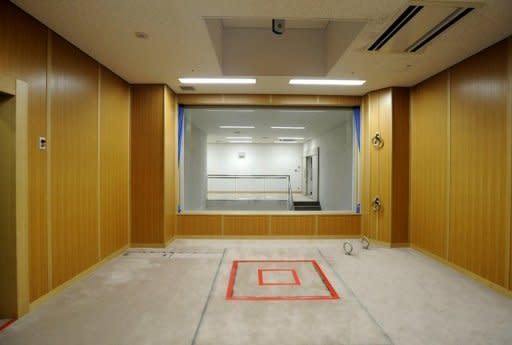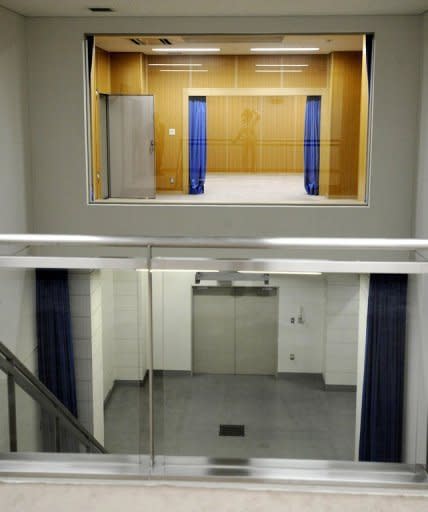Japan executes first prisoners since 2010
Japan resumed its use of capital punishment after a 20-month break on Thursday, with an unapologetic government minister signing death warrants for three multiple murderers. The convicts went to the gallows on the orders of the justice minister, who said he was acting in line with public opinion, which overwhelmingly supports the death penalty. "Today, three executions were carried out," Toshio Ogawa said of the hangings, the first in Japan since July 2010. "I have carried out my duty as a justice minister as stipulated by law." Apart from the United States, Japan is the only major industrialised democracy to carry out capital punishment, a practice that has led to repeated protests from European governments and human rights groups. France urged Japan to impose a moratorium on the death penalty and said the executions "were even more regrettable because they occurred after Japan had not applied the death penalty for more than a year and a half." The Parliamentary Assembly of the Council of Europe (PACE) also strongly condemned the action, while Amnesty International said it would write to Ogawa and Prime Minister Yoshihiko Noda to protest. The Japan Federation of Bar Associations reiterated its call to abolish the death penalty, saying it goes against global trends. Japan did not execute anybody in 2011, the first year in nearly two decades the country had not carried out a single death sentence amid a muted debate on the rights and wrongs of the policy. International advocacy groups have denounced the Japanese system, under which death row inmates can wait for their executions for many years in solitary confinement and are only told of their impending death a few hours ahead of time. The wait can become decades, with Japan's wheels of justice turning slowly. Ogawa was unrepentant for his order, citing the legal requirement for execution and demand from the public, who in polls have shown 85 percent support for capital punishment. "Punishments for crimes are decided by the public," he said, referring to Japan's long-standing policy of using capital punishment. The three inmates put to death on Thursday were all multiple murderers, whose violence in low-crime Japan shocked the public. Yasuaki Uwabe, 48, drove a car into a train station in Kyushu in a planned random killing, hitting several people before running onto the platform with an 18-centimetre (seven-inch) knife. He killed five people and injured 10. Tomoyuki Furusawa, 46, whose wife was hiding at her parents' home in Yokohama to escape his abuse as she filed for divorce, killed her elderly parents and her 12-year-old son in 2002 before abducting and assaulting her. Yasutoshi Matsuda, 44, killed two women in southern Miyazaki prefecture in 2001. The most recent executions in Japan before Thursday were in July 2010 when then justice minister Keiko Chiba approved the hanging of two inmates, despite her long-standing opposition to the death penalty. In an unusual move, Chiba attended the executions and later allowed the media to visit the execution chamber at the Tokyo Detention House in a move to increase public debate over the death penalty. Under Chiba, the justice ministry began looking into whether capital punishment should continue. But the review ended inconclusively this year under Ogawa. Ogawa said following the executions that 132 people remained on death row.




